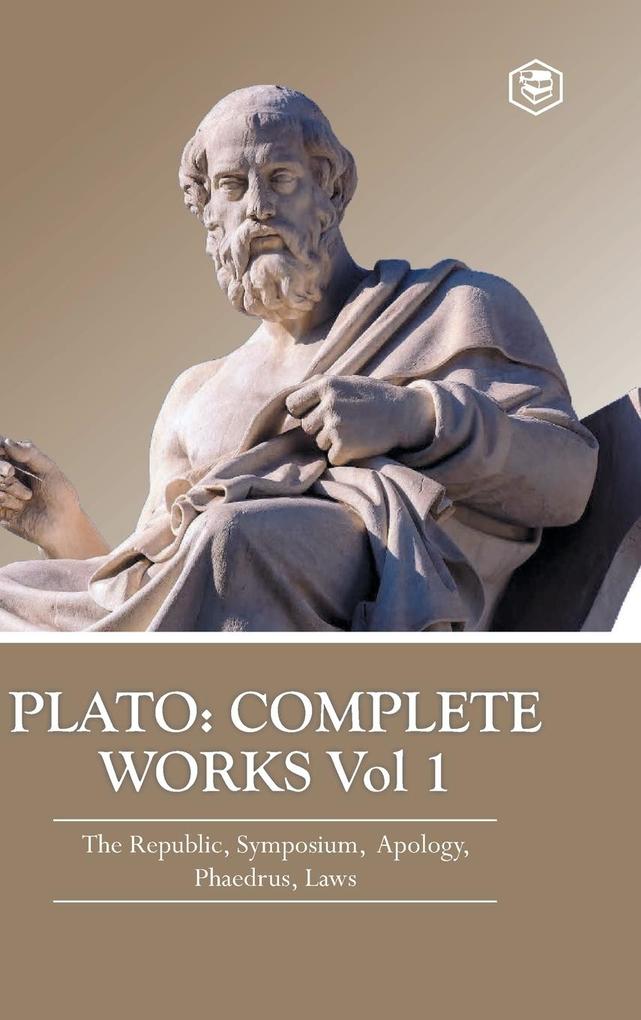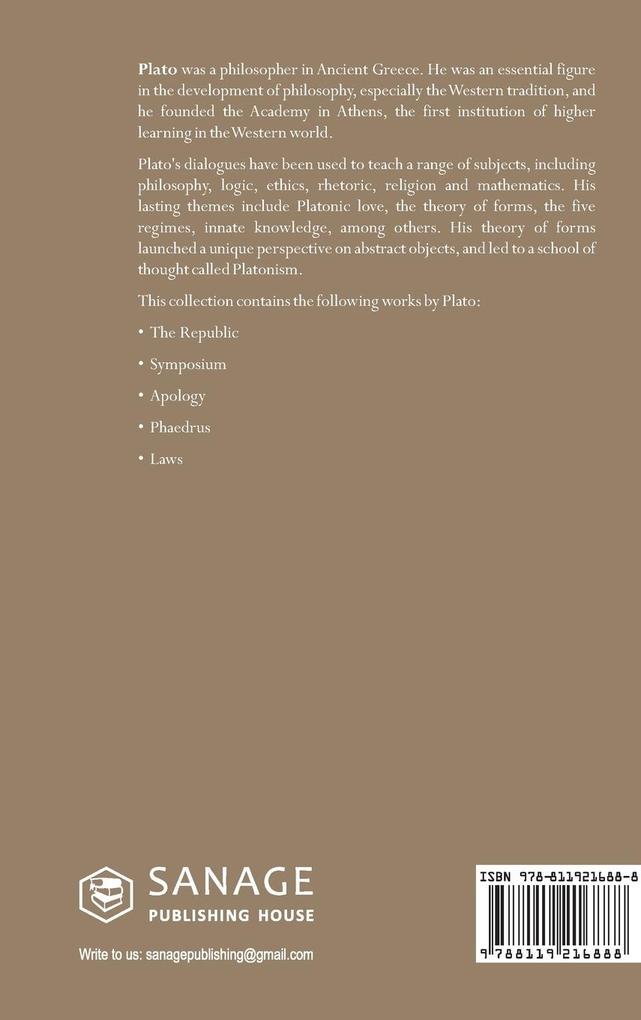Plato (428/27-348/47 bce)
Plato was an Athenian philosopher from the Classical Period in Ancient Greece. He grew up during the Peloponnesian War (431-404 bce), and came of age around the time of Athens' final defeat and the turmoil that followed. He was a close associate of the great Greek philosopher Socrates, who is considered to be the founder of Western philosophy; he was later condemned to death. The Socratic method of dialogue and debate are extensively found in Plato's works. He wrote approximately 35 dialogues with Socrates as a character in order to bring out the ideas and beliefs of his teacher. Two of his notable works are Apologia, which recounts Socrates' trial, and Phaedo, a dialogue that chronicles the conversations on the day that Socrates was put to death.
Following the execution of Socrates, Plato travelled to Egypt, Sicily, and Italy. He studied and contributed to philosophy, mathematics, and science. Upon his return to Athens, he founded the Academy-the first institution of higher learning in the West. The institute focused on research around philosophy and science. One of the famous students at Plato's Academy was Aristotle, who went on to challenge some of Plato's views on literature and poetry.











